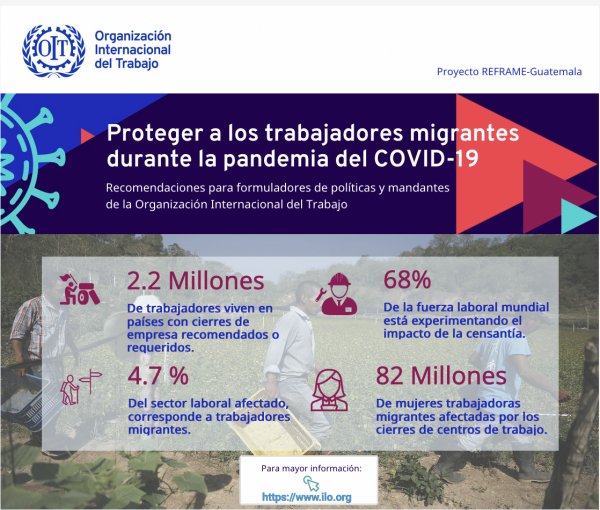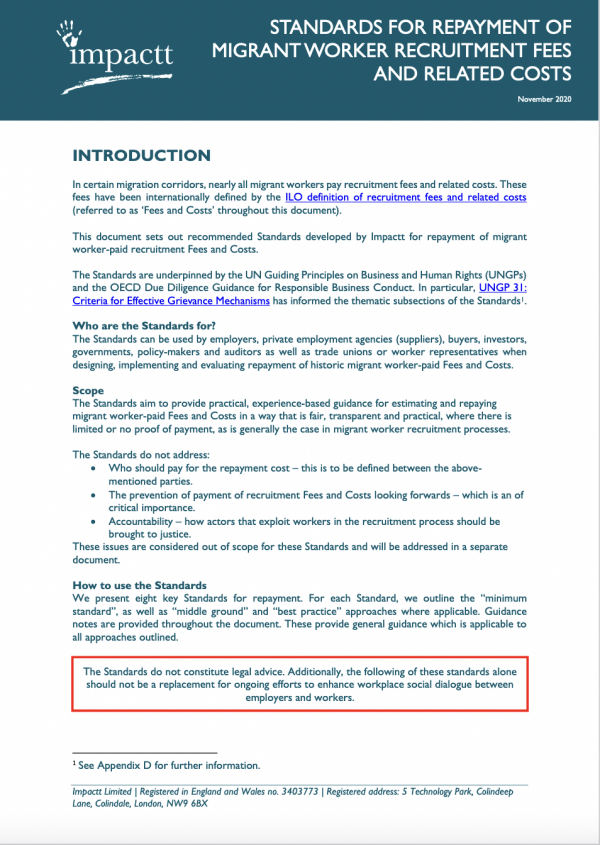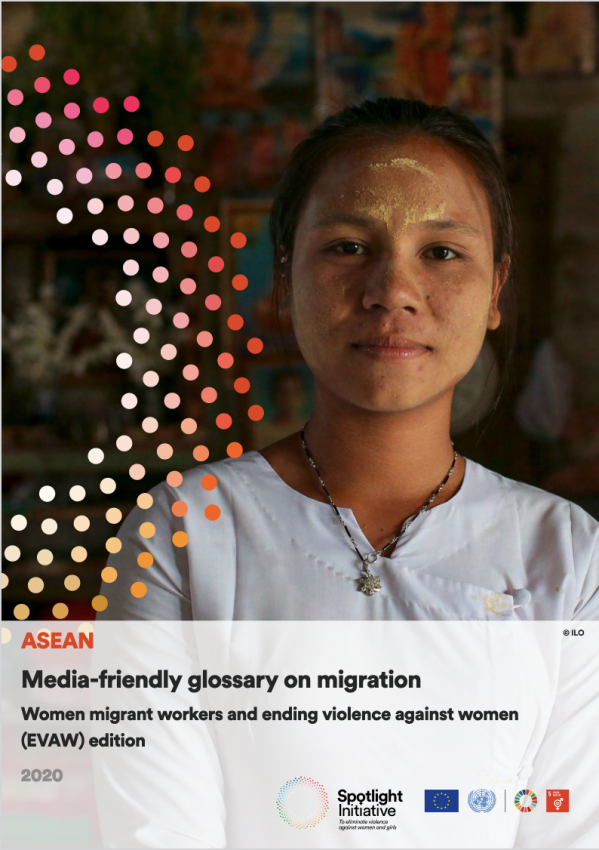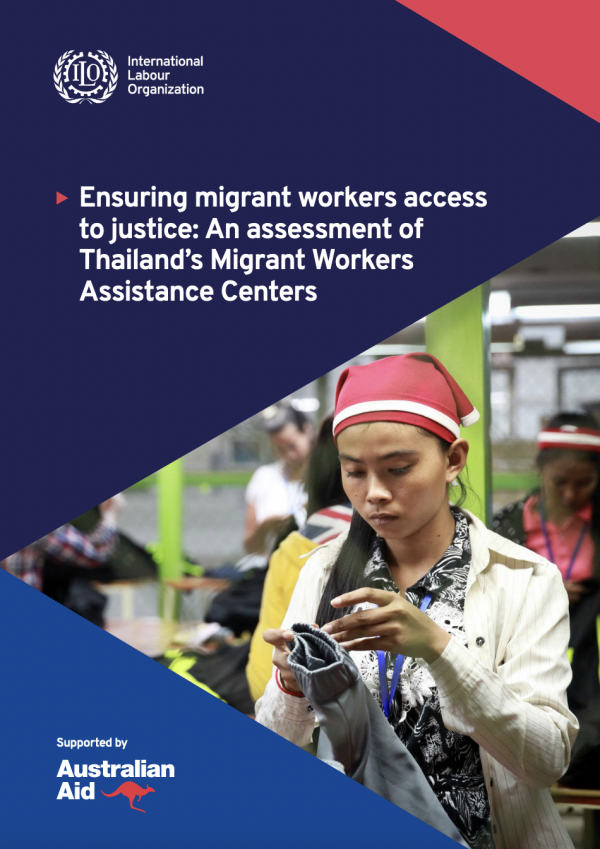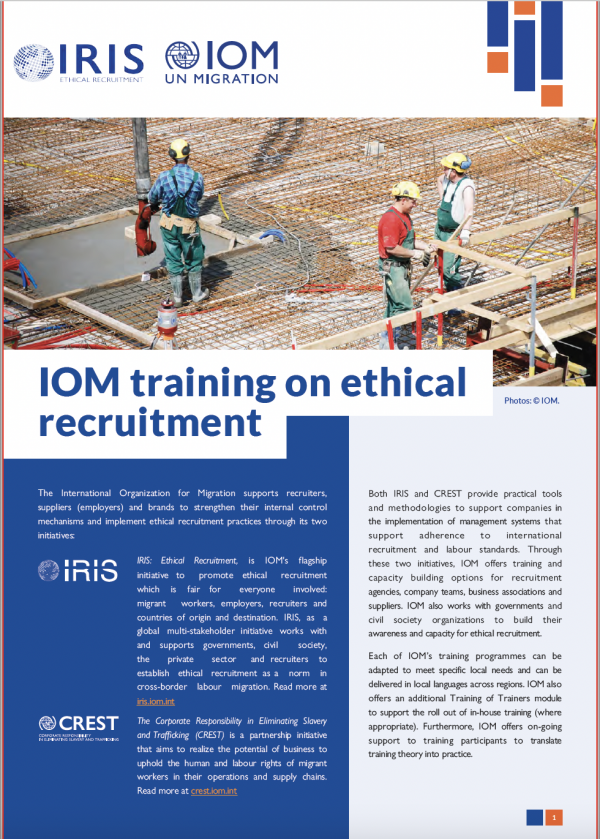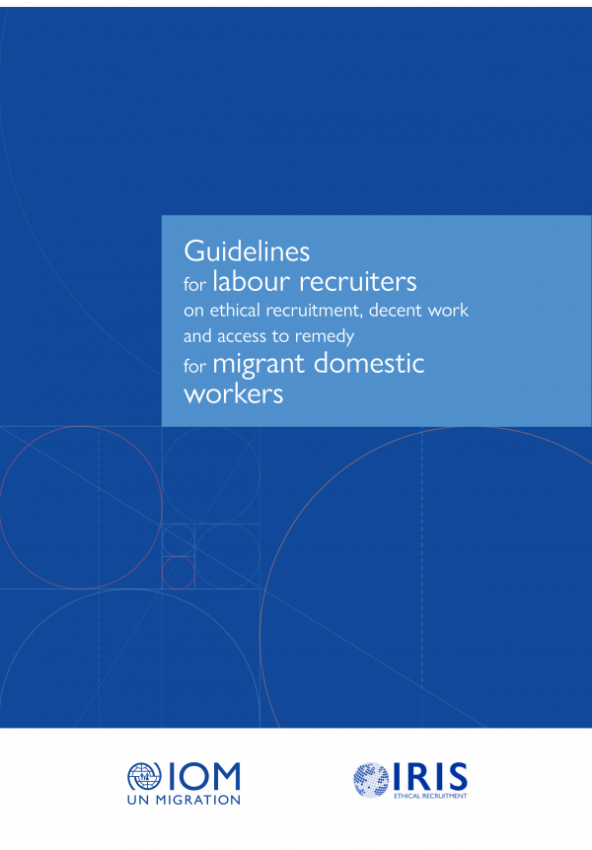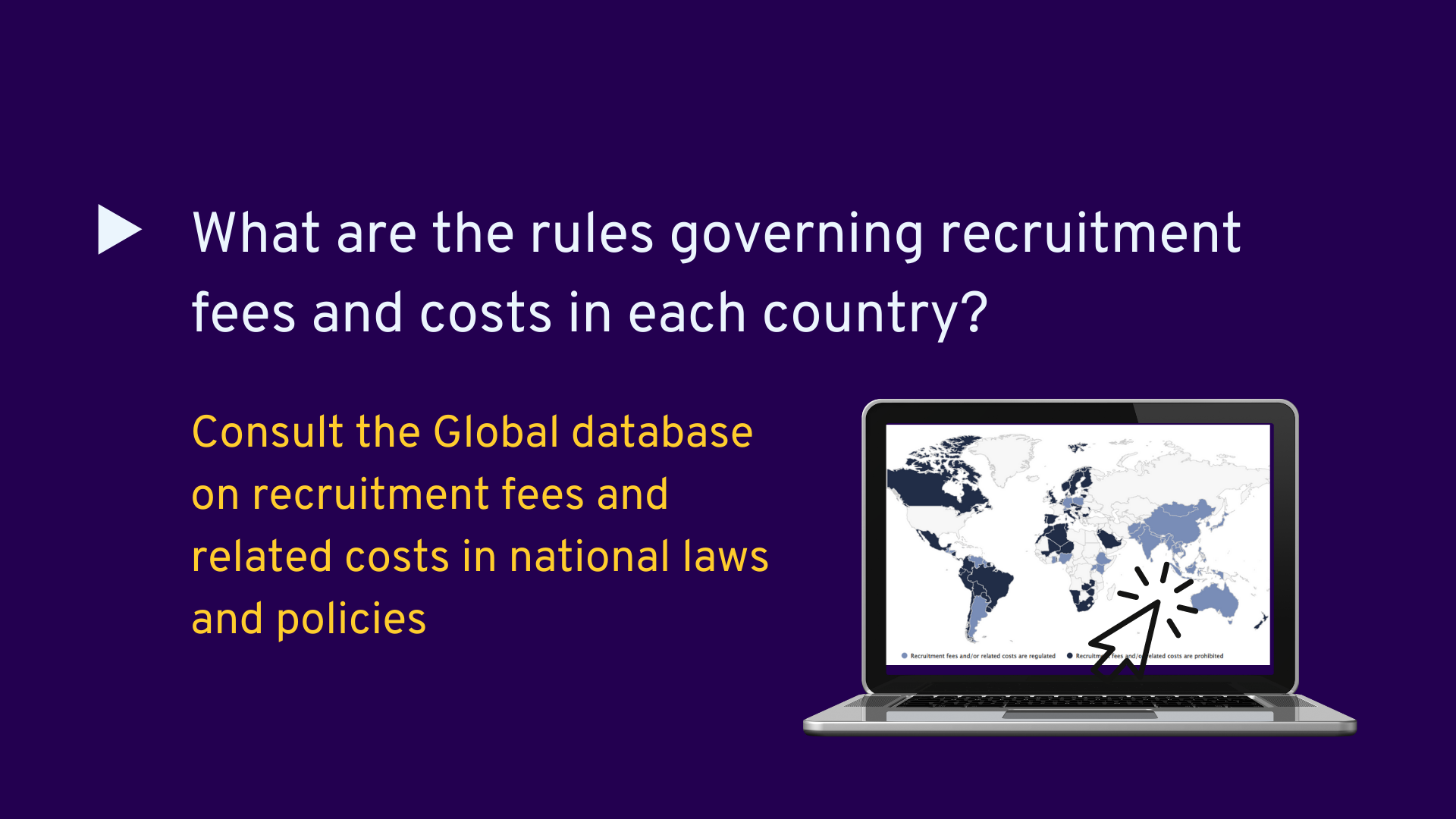Protecting migrant workers during the COVID-19 pandemic
The infographic seeks to inform on the need to protect migrant workers during the COVID-19 pandemic by providing recommendations for policy makers and ILO constituents.
It provides facts and figures on Guatemalans abroad, return of Guatemalans in the US-Mexico corridor, family remittances and areas for action to promote bilateral cooperation between countries of origin and destination, inclusion of migrant workers in national responses and social dialogue.
Type of document :
Country/Region :
Year of publication :
Theme : , ,
Standards for repayment of migrant worker recruitment fees and related costs
This document sets out recommended Standards developed by Impactt for repayment of migrant worker-paid recruitment Fees and Costs.
Type of document :
Country/Region :
Year of publication :
Theme : ,
Media-friendly glossary on migration: Women migrant workers and ending violence against women (EVAW) edition
This glossary serves as a guide for journalists, researchers, practitioners and others who conduct trainings or write about women’s labour migration and violence against women.
Type of document :
Country/Region :
Year of publication :
Theme :
Ensuring migrant workers access to justice: An assessment of Thailand’s Migrant Workers Assistance Centers
To increase migrant workers’ access to justice in Thailand, in 2016 the Ministry of Labour established Migrant Workers Assistance Centers in ten provinces throughout the country. By April 2019, the ten centres had delivered services to nearly 125,000 migrant workers from Cambodia, the Lao People’s Democratic Republic and Myanmar.
Type of document :
Country/Region :
Year of publication :
Theme :
IOM training on ethical recruitment
The International Organization for Migration supports recruiters, suppliers (employers) and brands to strengthen their internal control mechanisms and implement ethical recruitment practices through its two initiatives:
IRIS: Ethical Recruitment, is IOM's flagship initiative to promote ethical recruitment which is fair for everyone involved: migrant workers, employers, recruiters and countries of origin and destination. IRIS, as a global multi-stakeholder initiative works with and supports governments, civil society, the private sector and recruiters to establish ethical recruitment as a norm in cross-border labour migration. Read more at iris.iom.int
The Corporate Responsibility in Eliminating Slavery and Trafficking (CREST) is a partnership initiative that aims to realize the potential of business to uphold the human and labour rights of migrant workers in their operations and supply chains. Read more at crest.iom.int
Type of document :
Country/Region :
Year of publication :
Theme : ,
Guidelines for Labour Recruiters on Ethical Recruitment, Decent Work and Access to Remedy for Migrant Domestic Workers
This publication is to inform labour recruiters on best practices for promoting, facilitating and ensuring the ethical recruitment of migrant domestic workers. The guidelines are derived from the International Recruitment Integrity System (IRIS) Standard, developed by IOM through an extensive multi-stakeholder consultation process. The guidelines follow the seven IRIS principles, offering special guidance and best practices tailored for the migrant domestic workers recruitment industry.
The guidelines were developed under the project Asia Region: Promoting Ethical Recruitment and Decent Work among Private Sector Partners by Strengthening Company Policies to Protect Domestic Workers. While the project focuses on the recruitment of migrant domestic workers to Hong Kong Special Administrative Region, China, from Bangladesh, Indonesia and the Philippines, these guidelines are relevant to recruiters of migrant domestic workers across migration corridors and globally.
Type of document :
Country/Region :
Year of publication :
Theme :
Global database: Definition of fees and related costs in national laws and policies
This map displays a global database of national laws, policies and regulations (policies) that have defined recruitment fees and related costs.
The data collection was undertaken in 2018 in preparation for a global study to support the Tripartite Meeting of Experts to Define Recruitment Fees and Costs . This meeting led to the adoption of the ILO definition of recruitment fees and related costs, to be read in conjunction with the ILO General Principles and Operational Guidelines for Fair Recruitment .
The global study scoped the national laws and policies applied to public and private employment agencies and focused on formal channels of recruitment. Overall, the database contains policies of 90 countries that took a position or definition on the regulation or prohibition of recruitment fees and related costs. The two colours of the map indicate whether the policy regulates or prohibits the charging of recruitment fees and/or related costs to the worker. Clicking on a country will display (below the map) information about whether the policy applies to national recruitment, international recruitment of workers, and provide links to the policy.
Type of document :
Country/Region :
Year of publication :
Theme :
Subscribe to the Fair Recruitment Initiative Newsletter
Sign up to receive news delivered to your inbox.

